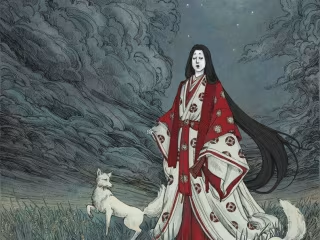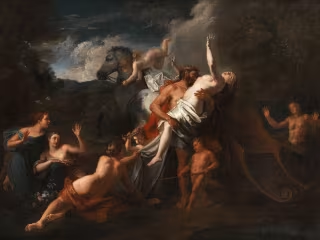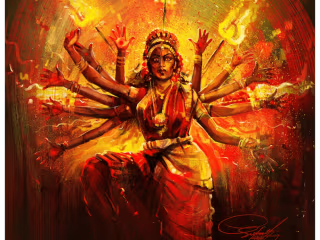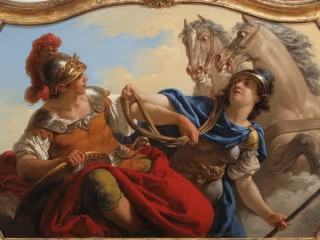Frigg: The Norse Goddess Of Motherhood and Fertility
0
Ghostwriter
Blog Writer
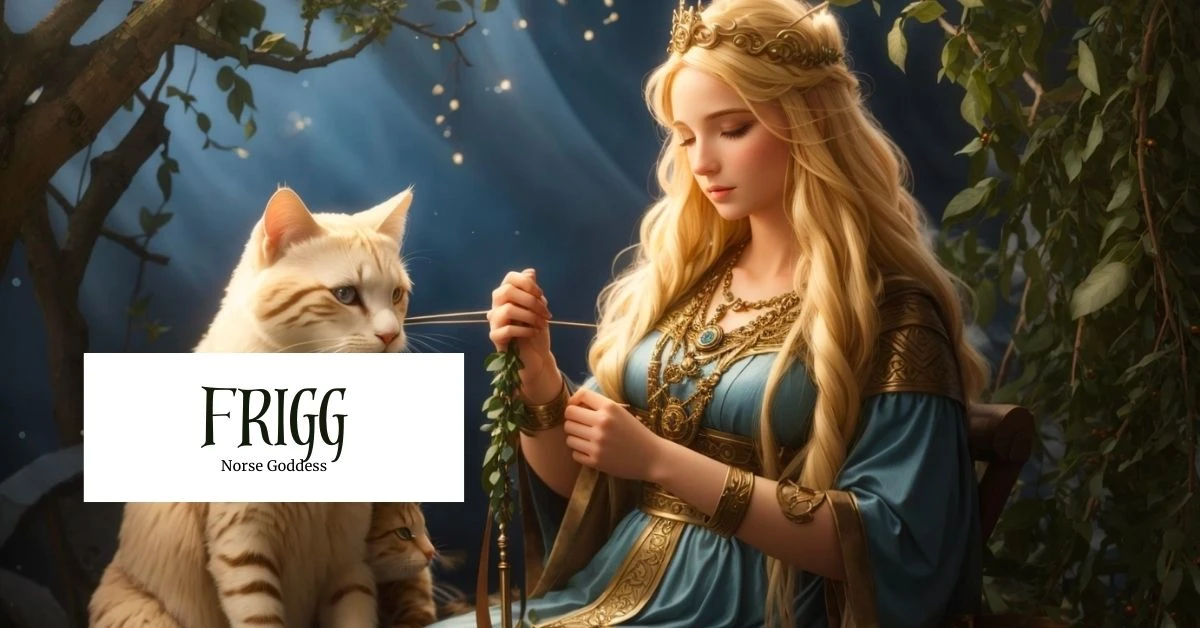
In the fascinating realm of Norse mythology, Frigg, the Norse Goddess of Motherhood and Fertility, holds a renowned position as Queen of the Aesir and Guardian of the Hearth. As the Queen of the Aesir, she occupies a regal position in Asgard, the realm of the gods, while her role as the Guardian of the Hearth highlights her nurturing and protective qualities, emphasizing her crucial significance to the daily lives of mortals. From her enigmatic origins to her enduring influence on modern culture, Frigg’s presence permeates the very fabric of Norse mythology, offering profound insights into the intricacies of the ancient worldview.
Overview of Frigg
As the beloved wife of Odin, the goddess’s name Frigg derives from the Old Norse term “Frigg” or “Frigga,” which is itself derived from the Proto-Germanic *Frijaz, meaning “beloved, dear” (Apel). However, the goddess’s influence extends far beyond mere domesticity. As the Aesir Queen and Guardian of the Hearth, her importance encompasses cosmic domains. Frigg’s position as a divine mother and goddess of fertility, as well as her association with love, marriage, and wisdom, further underscores the depth and richness of her character.
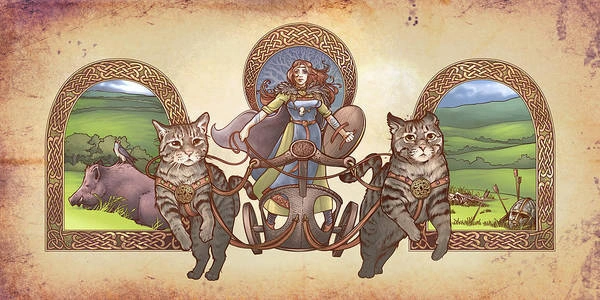
Source: Pixels
Titles
Queen of Heaven
Sky Goddess
Mother of All
Abilities
The awe-inspiring abilities of the Norse goddess of wisdom are as diverse as her many titles. Among her most remarkable attributes is her extraordinary gift of prophecy and foreknowledge. This skill shapes events within the Norse pantheon and beyond (“Frigg”). Renowned for her unparalleled capacity to foresee future occurrences, Frigg is an invaluable advisor to the gods, guiding their decisions through her far-reaching insights (“Frigg Overview, Mythology & Facts | Who Is the Norse God Frigg?”). As a matter of fact, Frigg’s unrivaled wisdom surpasses many deities within the Norse pantheon; this lends her counsel a particular gravitas, making her a trusted source of guidance.
Furthermore, Frigg wields the profound ability to influence fate itself, a power that underscores her connection with the intricate tapestry of destiny. As a masterful weaver, she deftly intertwines the destinies of mortals and immortals, using her complex threads of fate to shape outcomes, according to the History Cooperative. This unique ability to manipulate the fabric of existence enhances her role as a pivotal figure within Norse mythology, accentuating her unparalleled influence on the gods’ actions and the destinies of all beings.
Frigg’s diverse abilities and unmatched wisdom make her a remarkable figure in the annals of mythology and an enduring source of inspiration for future generations.
Characteristics
Frigg is undoubtedly a regal and majestic figure, emanating an aura of authority and grace that is second to none. Her maternal warmth and profound sense of protection and care are unmistakable and are often depicted in her mature physical appearance, embodying the essence of nurturing and guardianship. Throughout Norse mythology, Frigg’s unyielding determination, wisdom, and inner strength have all contributed to her formidable presence within the pantheon. Her lavish gowns and robes, her hair typically a resplendent blonde hue, always accentuates her power and influence.
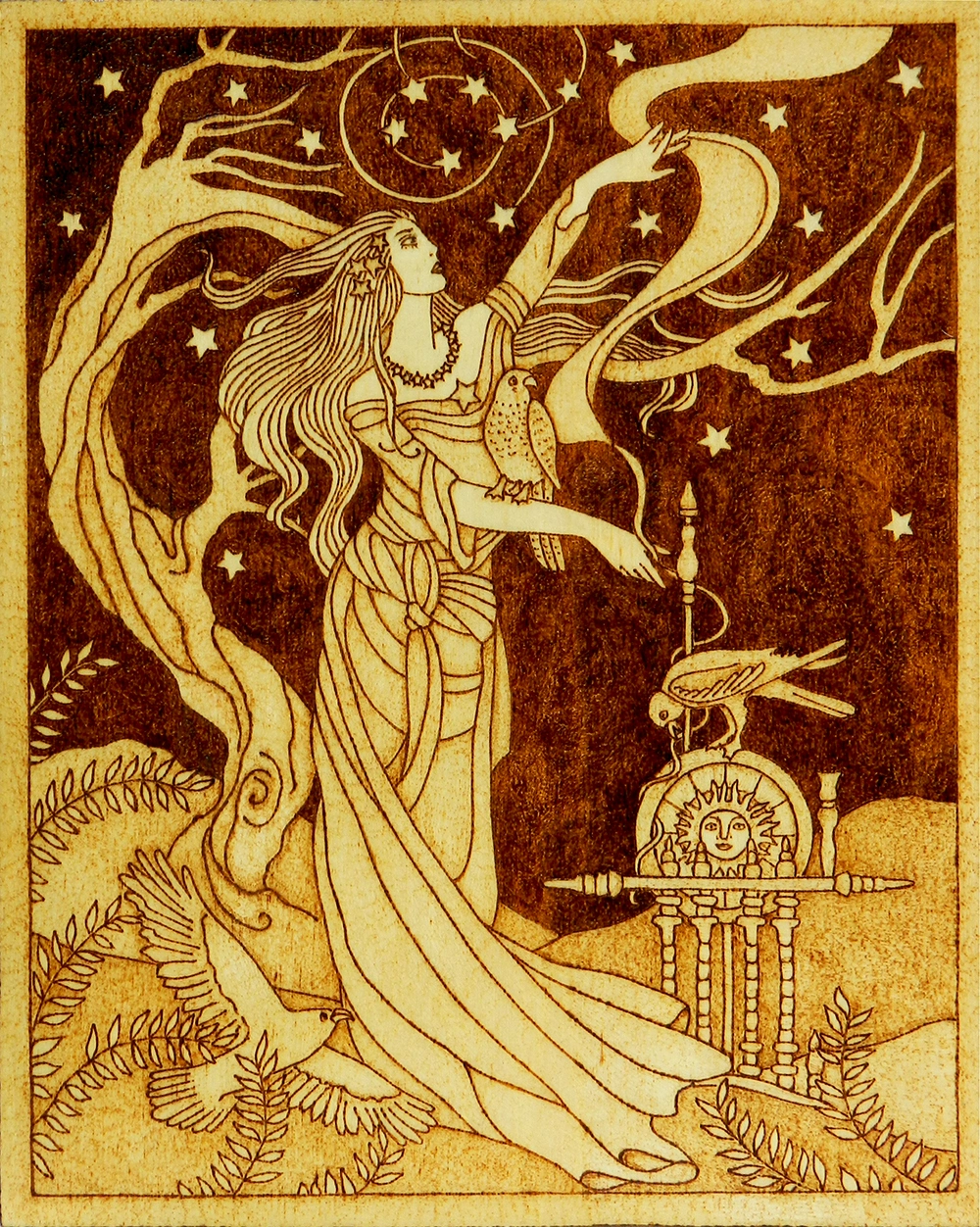
Source: Deviant Art
Traits
Frigg’s personality traits encompass diverse attributes, illuminating her intricate character within Norse mythology. Her compassionate and nurturing demeanor is particularly evident in her role as the mother of Baldr, the venerated god of light (Apel). This maternal instinct underscores her capacity for love and care, emphasizing her role as a foundational figure in the divine family dynamic.
Frigg’s devotion to her family is a testament to her unwavering loyalty and determination. Her readiness to go to great lengths to safeguard her loved ones from harm reinforces her status as a steadfast protector. Despite her regal stature as the queen of the Aesir, Frigg remains approachable and relatable. Her relatability is further highlighted by her ability to forge connections with gods and mortals through her deep understanding and empathy (Dhar). This empathetic disposition bridges the gap between the divine and the mortal, endearing her to those she guides and influences within the Norse pantheon.
Symbols
To fully understand Frigg’s significance and influence it is necessary to explore the intricate symbolism surrounding her character. The spindle and distaff, which are tools emblematic of weaving, profoundly represent her role as the weaver of fate (“Frigg”). Through the intricate crafting of the destinies of all beings, Frigg shapes the paths of their lives, highlighting the interwoven nature of existence itself.
The mistletoe plant is integral to Frigg’s symbolism, embodying themes of tragedy and renewal within her stories. While it becomes an instrument of Baldr’s downfall, it symbolizes his eventual resurrection, evoking themes of sacrifice and rebirth (“Frigg Overview, Mythology & Facts | Who Is the Norse God Frigg?”). These symbols collectively capture the profound essence of Frigg’s intricate character, encapsulating her deep connection to the cycles of fate, life, and death that shape the Norse cosmos.
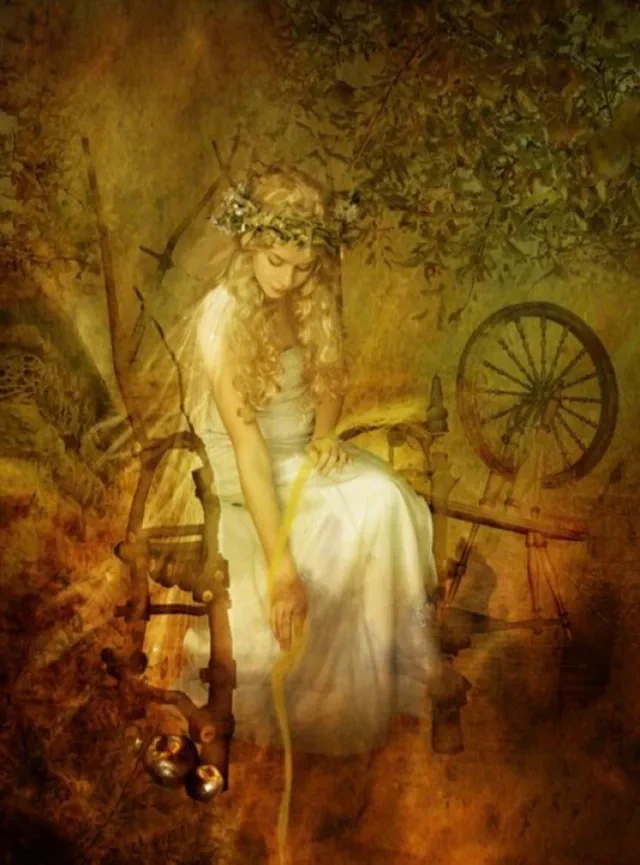
Source: Random Times
Festivals and Rituals
The immortal Frigg is commemorated through various festivals and rituals that pay homage to her dual roles as a powerful deity and a nurturing guardian. Among these observances, the Dísablót stands out as a poignant event dedicated to venerating female Gods like Frigg. During this solemn occasion, offerings are made to pray for these powerful goddesses’ safeguarding influence and blessings upon the community (“Frigg”). This ritual underscores Frigg’s maternal and protective attributes, emphasizing her role as a guardian and guide.
Another notable celebration that pays tribute to Frigg is the Winter Nights festival, a momentous occasion signifying the transition from summer’s warmth to winter’s cold embrace (“Frigg”). As part of this festival, feasting and offerings are extended to Frigg and other deities, invoking their favor for the impending season. By participating in such rituals, individuals seek to forge a deeper connection with Frigg, gathering her nurturing presence and wisdom to guide them through the cyclical changes of life. These traditions are deeply ingrained in Norse culture and honor Frigg’s indelible presence as a divine and protective force.
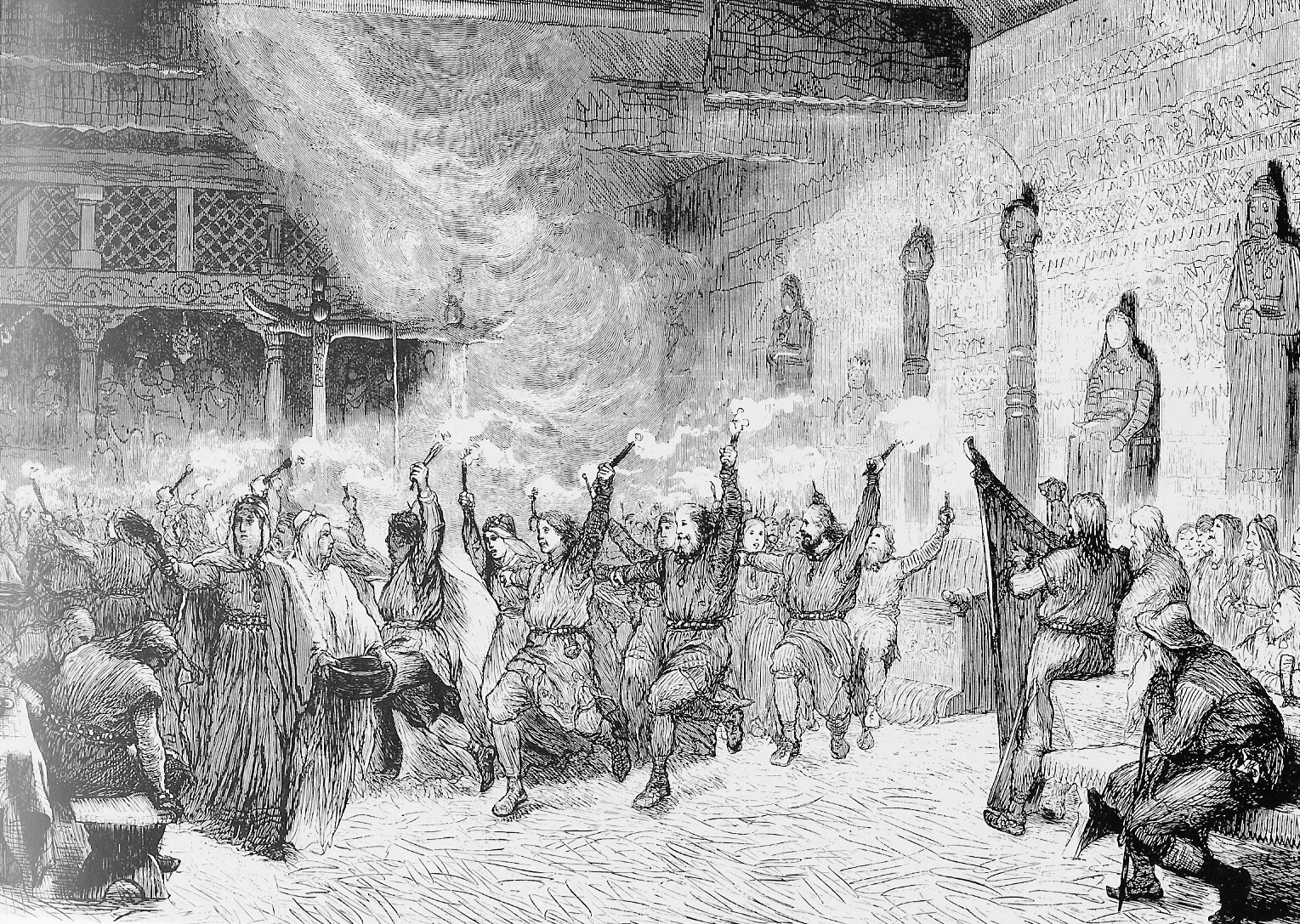
Source: Wikipedia
Legends associated with Frigg
Frigg’s enduring impact on contemporary culture is evident from her mysterious origins to the tragic demise of her son. The richness of her character and her role in the pantheon of Norse gods make her an iconic figure that continues to fascinate scholars and enthusiasts alike.
Origin story
The intricacies of Norse mythology reveal a fascinating tale of divine and earthly connections through the parentage of the goddess Frigg. According to myth, Frigg’s lineage can be traced back to the giants Fjörgyn and Fornjót, the feminine and masculine of one entity. Fjörgyn, the embodiment of the earth’s essence, is often attributed as Frigg’s mother, imbuing her with nurturing and grounding qualities derived from the land (“Frigg”). In contrast, the masculine form Fornjót, associated with the sea, is said to occasionally assume the role of Frigg’s father, endowing her with elements of mystery and fluidity from the waters.
As Frigg ascends to divinity, she carries a unique amalgamation of traits inherited from both the feminine and masculine – the power of the earth and the enigma of the sea. Her birth symbolizes a delicate balance between the worlds of gods and giants, casting a prophetic light on her crucial role as a bridge between these distinct realms (“Frigg”). This equilibrium highlights her significance as a mediator, protector, and figure who traverses boundaries, embracing the diversity of her heritage while uniting disparate dimensions within the cosmos.
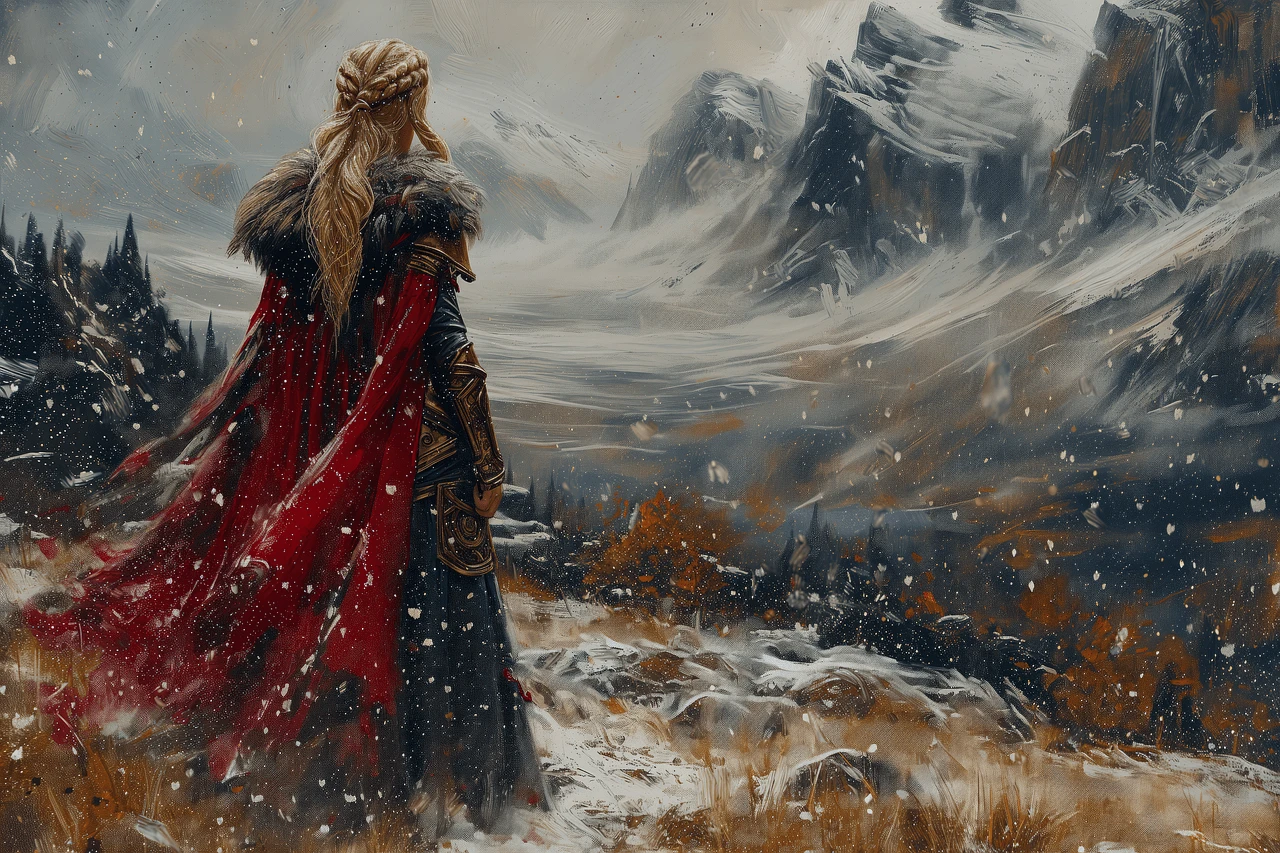
Source: Pixabay
Baldr’s Tragic Demise and Frigg’s Overwhelming Grief
The legend of Frigg’s character is steeped in many tales, among which is the tragic story of her son Baldr. Baldr, renowned for his beauty, purity, and invincibility owing to his mother’s efforts, was a beloved figure among the Aesir gods and mortals. As Baldr’s mother, Frigg was vigilant in ensuring her son’s safety and secured oaths from all beings and elements to prevent any harm (“Frigg”). However, Loki, the cunning trickster god, discovered a loophole in Frigg’s protective measures. He fashioned an arrow from mistletoe and deceived Baldr’s blind brother, Hodr, into using it during a friendly game, ultimately causing Baldr’s death. The tragedy of Baldr’s death cast a long shadow over both gods and mortals, shattering the harmony and joy that had once prevailed in the divine realms.
Frigg’s reaction to Baldr’s death was one of inconsolable grief. Her motherly love and tireless efforts to safeguard her son were in vain, and the pain of his loss was deeply felt. The depth of Frigg’s emotional turmoil resonated throughout the cosmos, underscoring the complexity of her character. This poignant tale, a reflection of the interplay between love and destiny, finds its resonance in both the “Poetic Edda” and the “Prose Edda” (“Frigg Overview, Mythology & Facts | Who Is the Norse God Frigg?”).
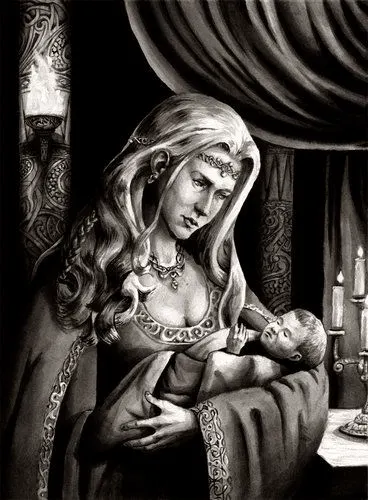
Source: Pinterest
The Lost Necklace: Uncovering Frigg’s Wisdom
A notable tale that showcases Frigg’s brilliant strategic insight and sagacity revolves around the story of the missing Brísingamen necklace. As per the legend, Frigg confided in Fulla about her strong desire to possess the exquisite and valuable necklace, Brísingamen, an exceptional masterpiece crafted by four dwarf brothers known as the Brísingar. These dwarfs had offered the necklace to Freyja, the goddess of love and fertility, in exchange for spending a night with her. However, Freyja refuses to part with the necklace to Frigg, leading to a conflict.
Observing Freyja’s attachment to the necklace, Frigg shared her secret longing with Fulla. Recognizing Frigg’s desire and the significance of the ornament and driven by her loyalty and compassion, Fulla employs shrewd diplomacy to assist Frigg in retrieving the necklace (Apel). She approached Freyja and convinced her to lend the chain to Frigg briefly, utilizing her persuasive skills. With Fulla’s diplomatic assistance, Frigg wore the necklace temporarily. However, the necklace was eventually returned to Freyja, and the story concluded with no significant consequences.
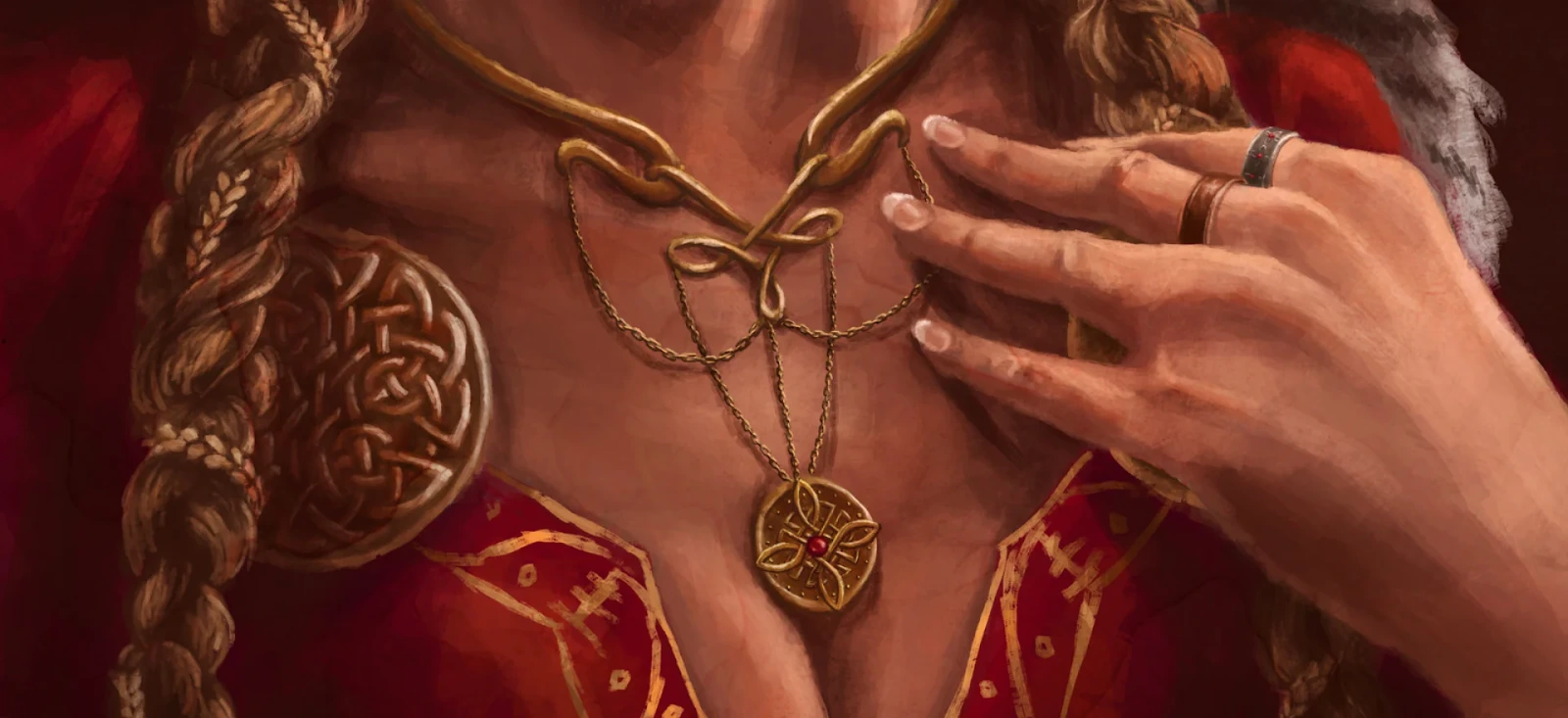
Source: Vikings Valhalla
Influences of other religions/cultures on Frigg
Norse mythology underwent a series of transformations as it interacted with evolving cultures and belief systems, much like many other ancient belief systems. As Christianity began to gain prominence, the portrayal of deities such as Frigg underwent a process of reinterpretation to align with the new religious paradigm. Frigg, renowned for her roles as a protective mother and a wise seeress, found aspects of her character assimilated into Christian concepts (Apel).
The qualities that made Frigg a revered figure were recontextualized within the Christian framework, allowing her to bridge the gap between pagan and Christian beliefs. Her maternal instincts and foresight resonated with Christian values of compassion and divine insight, thus aiding in the gradual acceptance of these mythological figures within the changing cultural landscape (“Frigg”). This syncretic process showcased the fluidity of mythic narratives, demonstrating their capacity to adapt while retaining their core attributes.
Frigg’s transformation is symbolic of the complex interplay between religious systems and the flexibility of mythology to adapt to the evolving beliefs of different eras. This evolution is a testimony to ancient narratives’ enduring significance and adaptability, even amidst cultural shifts.
Modern appearances
The resurgence of global interest in ancient belief systems has led to a renewed appreciation for deities such as Frigg, whose significance extends beyond the pages of historical texts to play a vital and enduring role in modern spiritual practices. The revival of neo-paganism and Norse-inspired traditions has breathed new life into the devotion and reverence for figures like Frigg, reigniting a powerful connection with the divine that transcends time (Dhar) and space, and inspires contemporary rituals, ceremonies, and celebrations.
Indeed, contemporary expressions of spirituality often draw upon historical sources to honor the Norse pantheon, with Frigg occupying a central place in these modern-day observances. These practices serve as a tangible bridge between the present day and the ancient past, allowing individuals to forge a deeper connection with their ancestral heritage and tap into their forebears’ rich cultural and spiritual traditions. Frigg’s portrayal as a nurturing and protective goddess has found resonance among those who seek a link to nature-based spirituality and a connection to ancient wisdom (“Frigg Overview, Mythology & Facts | Who Is the Norse God Frigg?”). Her qualities as a guardian and a provider of solace hold a particular allure in a modern world that often yearns for a deeper relationship with the natural world and the divine forces that shape it.
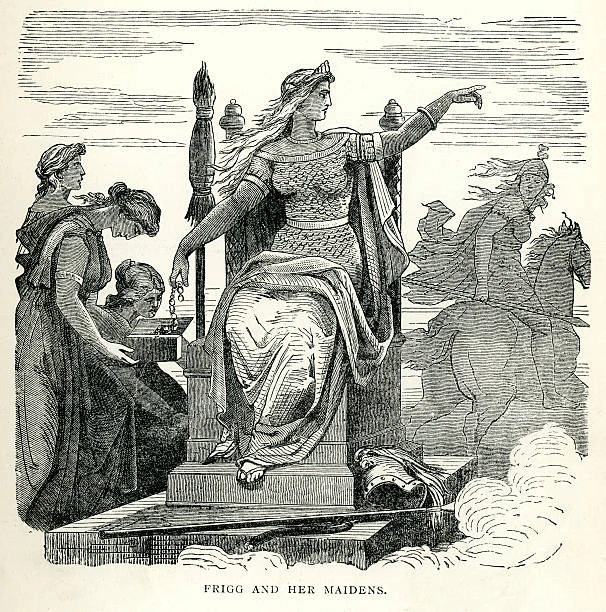
Source: iStock Photo
Final thoughts
The lore surrounding the enigmatic Norse goddess Frigg is nothing short of fascinating. Her stories intertwine themes of fate, motherhood, wisdom, and influence, shedding light on the intricacies of the Norse worldview. Frigg’s legacy remains a subject of ongoing fascination, from her cosmic origins as the offspring of a celestial union to her role as a nurturing mother grappling with the inevitability of destiny. Even today, her enduring power as a mythological figure continues to evolve, offering us a window into the ancient past and the goddess who deftly weaves the threads of history and the present.
References
Apel, Thomas. “Frigg.” Mythopedia, 18 Nov. 2021, mythopedia.com/topics/frigg.
Dhar, Rittika. “Frigg: The Norse Goddess of Motherhood and Fertility | History Cooperative.” History Cooperative , 12 Dec. 2022, historycooperative.org/frigg/.
“Frigg.” World History Encyclopedia, www.worldhistory.org/Frigg/.
“Frigg.” Wikipedia, 15 Jan. 2020, en.wikipedia.org/wiki/Frigg.
“Frigg Overview, Mythology & Facts | Who Is the Norse God Frigg?” Study.com, 2023, study.com/academy/lesson/frigg-overview-mythology-. Accessed 9 Aug. 2023.
Did we miss something? Do you know another aspect of this legend? Don't hesitate to reach out!
Like this project
0
A client hired me to write several informative pieces on Norse Goddesses, and this blog post centers around the Goddess of Motherhood and Fertility, Frigg.
Likes
0
Views
659
Tags
Ghostwriter
Blog Writer


